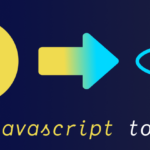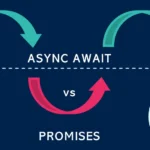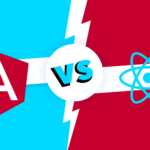
If you’ve ever worked with JavaScript, you’ve probably wondered, What language was JavaScript actually created with? Some say it’s Java (probably because of the name), while others argue it’s C++. This question has sparked countless debates among developers—even seasoned ones. Let’s settle it once and for all by diving deep into JavaScript’s history and execution process.
The Birth of JavaScript: A 10-Day Marvel
JavaScript was born in 1995, created by Brendan Eich while working at Netscape Communications. The goal? To make web pages more dynamic and interactive. Back then, the web was static—you could read it, but not interact with it much. Netscape wanted to change that, so they tasked Eich with creating a scripting language for browsers.
Here’s the kicker: Eich built the first version of JavaScript in just 10 days. Originally named Mocha, then LiveScript, it was eventually rebranded as JavaScript to capitalize on Java’s growing popularity at the time (even though the two languages are entirely different).
The Language Behind JavaScript
To clear the air: JavaScript was not created with Java. The name was pure marketing. Instead, JavaScript’s first implementation was written using C and C++. Here’s why:
- C and C++ were already used to build the Netscape browser. Brendan Eich utilized these languages to embed JavaScript directly into the browser.
- C++ offered the speed and performance needed for JavaScript’s execution.
So, to answer the burning question: JavaScript was built with C and C++, not Java.
ECMAScript: The Blueprint of JavaScript
Before we move forward, let’s talk about ECMAScript. It’s a common point of confusion, so let’s set it straight:
- ECMAScript is the standard or blueprint that defines how JavaScript should behave. It’s maintained by a group called ECMA International.
- JavaScript is the real-world implementation of that standard. It’s what we write and run in browsers or on servers (like Node.js).
Think of ECMAScript as the recipe and JavaScript as the dish. All JavaScript engines (more on them soon) are designed to follow the ECMAScript standard to ensure consistency across different environments.
What is a JavaScript Engine?
A JavaScript engine is the software responsible for running JavaScript code. Without it, your JavaScript code would just be text sitting idle. Popular engines include:
- V8: Used by Google Chrome and Node.js
- SpiderMonkey: Used by Mozilla Firefox
- JavaScriptCore: Used by Apple’s Safari
These engines, built with C++, do the heavy lifting of interpreting and executing JavaScript code. Let’s see how they work.
How Does JavaScript Get Executed?
JavaScript isn’t directly understood by your computer. It’s a high-level language, meaning it needs to be translated into machine code (instructions your CPU can understand). Here’s how that happens step-by-step:
1. Parsing
When you write JavaScript code, the engine first reads it and converts it into an Abstract Syntax Tree (AST). The AST is a structured representation of your code that’s easier for the engine to process.
2. Compilation
Modern engines use Just-In-Time (JIT) compilation:
- Instead of interpreting your code line-by-line (which is slow), the engine compiles your JavaScript into machine code while it’s running.
- This approach balances speed and flexibility, allowing for real-time optimizations.
3. Execution
Finally, the compiled machine code runs directly on the CPU. Your JavaScript is never converted into C++; instead, it’s translated straight into machine code.
Why This Matters
Understanding JavaScript’s roots and execution process isn’t just academic. It helps you:
- Write better, optimized code by knowing what happens under the hood.
- Debunk myths like “JavaScript runs on Java” or “JavaScript compiles into C++.”
- Appreciate the brilliance of modern JavaScript engines and their role in making web applications fast and responsive.
Key Takeaways
- JavaScript was created in 1995 by Brendan Eich using C and C++.
- The name “JavaScript” was a marketing move; it has no technical connection to Java.
- ECMAScript is the blueprint for JavaScript, ensuring consistency across implementations.
- JavaScript engines (like V8 and SpiderMonkey) interpret and execute JavaScript code by compiling it into machine code, not C++ or Java.
- The engines themselves are written in C++ to achieve high performance.
Next time someone asks whether JavaScript was created with Java or C++, you’ll have the answer—plus a deeper understanding of how this amazing language works. Drop your thoughts in the comments below, and let’s keep learning together.
Happy coding, Naija devs!











